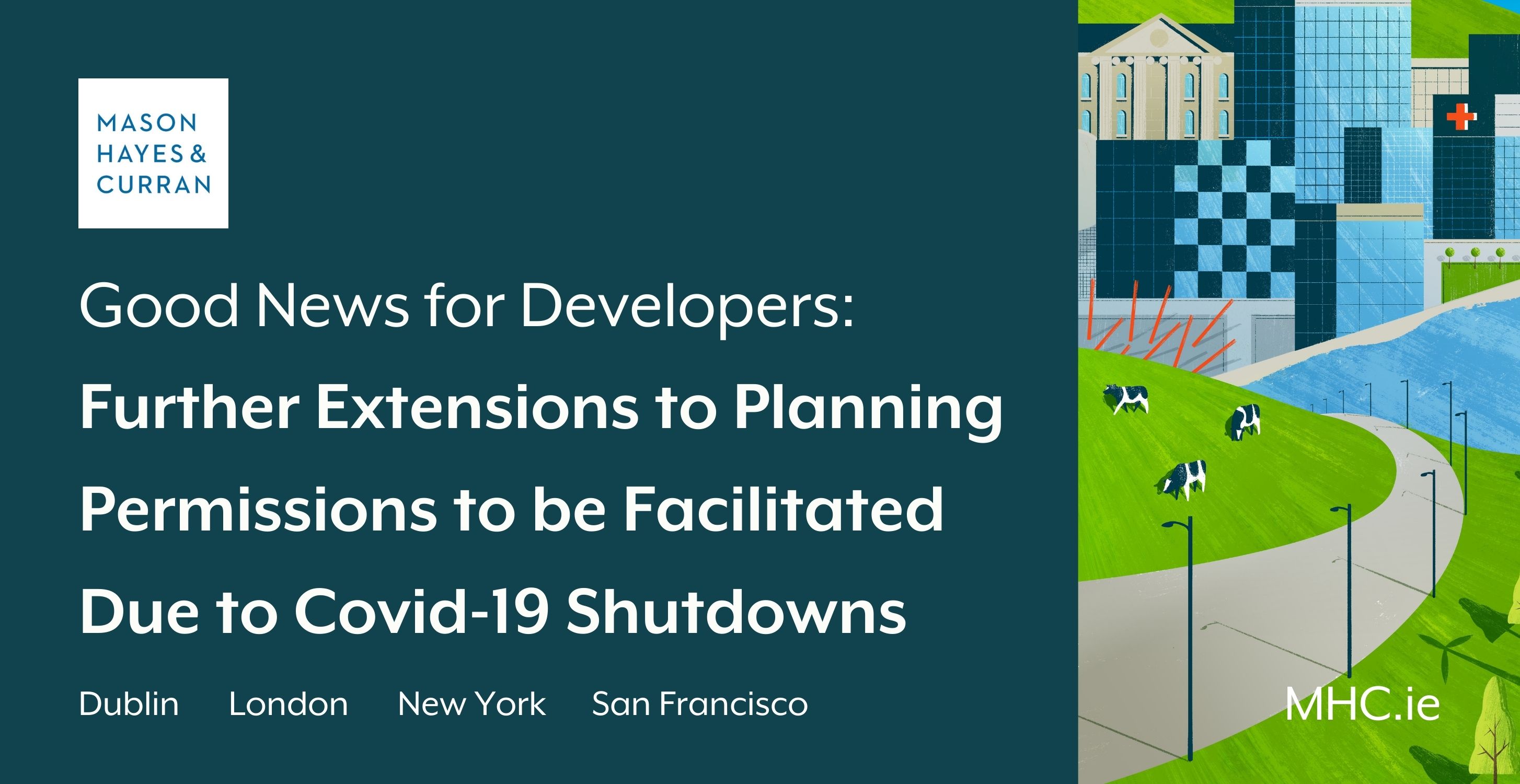
Section 7 of the Planning and Development (Amendment) Act 2021 No. 18 of 121 (2021 Act) came into operation on 9 September 2021. It provides developers with the opportunity to apply, on a temporary basis, for further extensions of planning permission previously extended, by a period of up to two years or until 31 December 2023, whichever first occurs.
The general scheme of the Bill, which had been approved in May, had originally provided for a single year of further extension. However, following further consultation, an extension of up to two years, subject to a sunset clause of 31 December 2023, was considered appropriate. This was considered to be a reasonable period to respond not only to the direct delays to construction work caused by the COVID-19 pandemic, but also to reflect the possible additional disruption to logistics, supply chains, and availability of personnel when trying to get construction work restarted after the shutdowns of building sites over the past year.
To be eligible to further extend the life of a planning permission, the developer must:
-
Set out the reasons why the relevant development cannot be reasonably completed within the relevant period
-
Provide evidence that an environmental impact assessment or an appropriate assessment would not be required in relation to the proposed extension
-
Demonstrate that the proposed extension is required to enable the relevant development to be completed
-
Show that the application for the proposed extension is compliant with Planning and Development Regulations, as amended by the 2021 regulations, and
-
Demonstrate that the relevant development has been commenced, and substantial works have been carried out before the expiration of the relevant period.
To avail of the extension, an application must be made to the relevant planning authority showing that the development to which the permission relates can fulfil the above criteria. The planning authority must grant an extension if it is satisfied the requirements have been met. If the planning permission expired between 8 January 2021 and 9 September 2021, the application must be made within 6 months of 9 September 2021. If the planning permission has not expired on 9 September 2021, the application must be made no earlier than one year before its expiry.
The Planning and Development Acts generally prohibit the appropriate period of a planning permission being extended more than once i.e. the period in which a development can be carried out. However, the new legislation introduced to facilitate strategic housing developments, the Planning and Development (Housing) and Residential Tenancies Act 2016 (2016 Act), permitted planning permissions which had already been extended to be further extended in certain circumstances. Developments that availed of this further extension under the 2016 Act have also been specifically included within the ambit of Section 7 of the 2021 Act. These developments will also be able to make an application to the planning authority to further extend the planning permission, if required.
Conclusion
This is good news for developers, as progressing construction has been inevitably stifled due to the rolling COVID-19 shutdowns. The Government has applied a reasonable approach in permitting extensions for up to two years or until 31 December 2023, whichever occurs first to allow for ongoing issues with supply chains and lead times on materials, equipment and availability of personnel. That said, developers will need to ensure they meet the criteria required to be eligible to benefit from an extension.
For more information on the residential tenancies, contact a member of our Real Estate Team.
The content of this article is provided for information purposes only and does not constitute legal or other advice.





